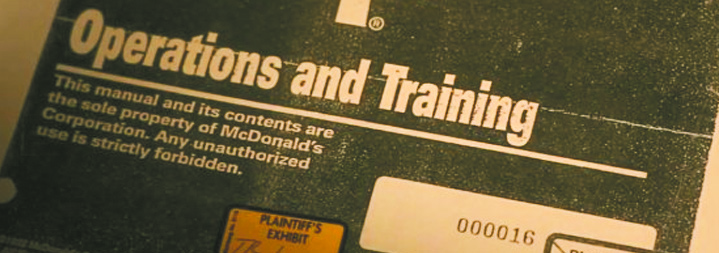Most people have heard about the McDonald’s coffee lawsuit—the infamous 1992 case in which 79-year-old Stella Liebeck purchased a cup of coffee at an Albuquerque McDonald’s, spilled it and then sued the company for $2.86 million. Most people made up their minds about it long ago. But those who view Hot Coffee, attorney Susan Saladoff’s new documentary about the case, may find themselves questioning everything they thought they knew about the lawsuit. Typically, this occurs right around the moment graphic images of Liebeck’s burns (which were serious enough to require skin grafts) appear on screen. From there, the film explores how the case was used to sell the idea of “tort reform”—laws that seek to place limits on consumers’ ability to sue corporations—to the American public. The Alibi spoke to Saladoff about the film, which is due to receive the Best Feature Award at this year’s Duke City DocFest. Given that folks think they know all about the case, why should they want to see this movie? You know, I think that when many people come into the film, they actually think that it’s going to be about all those “frivolous lawsuits.” They actually come in with the perception that they’re going to see a film about the McDonald’s case, and it’s going to be funny, and it’s going to sort of show the ridiculousness of our system. I think that what happens is that they come in and within the first five minutes, as soon as they see the burns, they’re completely flipped. And they’re shocked. And they say, My God, why didn’t I know this? And what else don’t I know?I’ve now talked to thousands of people at Q & As after screenings and I always ask them, “How many people knew about this case before you walked in the door?” Everybody raises their hand. “How many people thought it was a frivolous lawsuit?” Everybody raises their hand. I ask, “How many people think that now?” Nobody raises their hand. Where does the idea come from that this case, and others like it, are frivolous lawsuits? And who does it benefit? Large corporate entities that don’t want to be held accountable when they make products that harm people. As the movie shows, you have to follow the money. … We’re talking about tort reform, which becomes a political issue every election cycle because large corporations who fund election campaigns want to be immune from legal liability. Because when they are immune, and when there are people who don’t have the ability to access the court system, then you cannot hold them accountable when they do things that are harmful, and then they make more money. And that’s what this is about. Could you talk a little bit about the disconnect between the mainstream perception of tort reform and what the term actually means? When people hear the words “tort reform,” they are embarrassed to say that they don’t know what it is, because it’s repeated in so many contexts that people feel like they should know it already. The other thing about it is that word “reform.” Most people think that reform is a good thing. They don’t think about “reform” meaning that rights are being taken away from them. I have four [parts] in the film, and each one represents a different way that we as Americans are giving up our rights to access the courts. And each one represents a different type of tort reform. Each one is a different way that, when a person is injured or has something bad happen to them, that they’re being limited in their ability to get justice. And that’s what tort reform is.And what’s crazy is that it’s not like our rights are being taken away from us; we’re giving them up. We’re voluntarily handing them over. We’re voting for legislation that takes away our rights by having caps on damages. We’re voting for judges who are basically bought and paid for by large corporate interests. And we’re signing away our rights in contracts when we don’t even know what the contracts mean. It’s pretty incredible. The picture you paint with this film shows our judicial system being disempowered, and it is pretty bleak. Is there any good news in the face of this kind of calculated erosion? The first thing is that the film is making a difference. People who are watching the film are learning, and as a result they’re able to do something. Without knowledge, we’re pawns right? The second thing is that on our website, hotcoffeethemovie.com, we have a “Take Action” page. You can go there, and it has all the different things that you can do to take action on these things. We have control over making calls to our congresspeople. And we have control over who we vote for. How are people reacting to the film? Most people love it, which is great. Or they get really angry, but in a good way.
Hot Coffee Wednesday, Oct. 12, 8:15 p.m.Friday, Oct. 14, 7 p.m.Sunday, Oct. 16, 1:45 p.m.Duke City DocFestRunsWednesday, Oct. 12, through Sunday, Oct. 16 KiMo Theatre 423 Central NWdukecitydocfest.org






